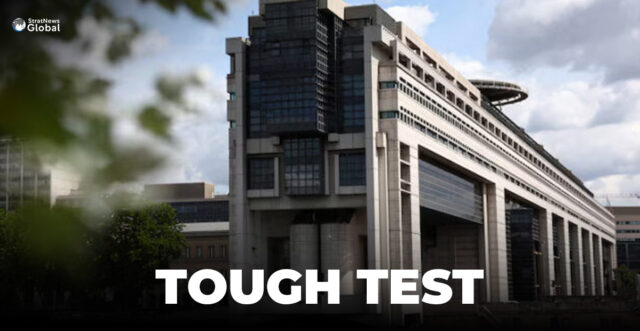French Prime Minister Francois Bayrou is set to unveil a 40-billion-euro budget tightening plan on Tuesday, even as opposition parties warn they may bring down his minority government if the proposed spending cuts are seen as too severe.
President Emmanuel Macron has left Bayrou the task of repairing the public finances with the 2026 budget, after his own move to call a snap legislative election last year delivered a hung parliament too divided to tackle spiralling spending and a surprise tax shortfall.
Broad Sacrifices Unavoidable
Long-time debt hawk Bayrou has tried to warn the French that broad sacrifices are unavoidable, although defence spending will be allowed to increase next year.
The squeeze, to be detailed in a late afternoon news conference, will probably involve freezing most social benefits while some tax breaks will likely be capped.
Bayrou, a veteran centrist, must persuade the opposition ranks in France’s fractured parliament to at least tolerate his cuts or risk facing a no-confidence motion like the one that toppled his predecessor in December over the 2025 budget.
Macron’s Request
When announcing a new hike in defence spending on Sunday, Macron urged lawmakers not to trigger another no-confidence motion, saying that the one in December had hurt companies and set a defence build-up back by delaying the 2025 budget.
“That vote has delayed the defence budget. It is now up to the government to allocate the necessary funds in a timely manner so we can continue to innovate more quickly, to produce more quickly,” he said.
Left-wing parties will likely baulk at welfare cuts, while the far right warns a broad spending freeze is unfair to French citizens and could prompt them to oppose Bayrou’s plans.
In the final two years of his second term, the dramatic deterioration of the public finances may tarnish Macron’s legacy.
A political outsider, he was first elected in 2017 on promises to break the right-left divide and modernise the euro zone’s second-biggest economy with growth-friendly tax cuts and reforms.
Successive crises – from protests, COVID-19 and runaway inflation – have shown he has failed to change the country’s overspending habit, however.
0.8% Cut
Bayrou aims to reduce the budget deficit from 5.4% of GDP this year to 4.6% in 2026, ultimately targeting the EU’s 3% fiscal deficit limit by 2029.
With interest payments potentially becoming the biggest budget outlay, financial markets and ratings agencies are keen to see whether Bayrou can get his plans through parliament without triggering another political collapse.
(With inputs from Reuters)





